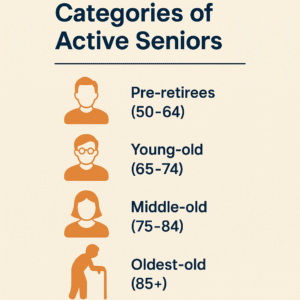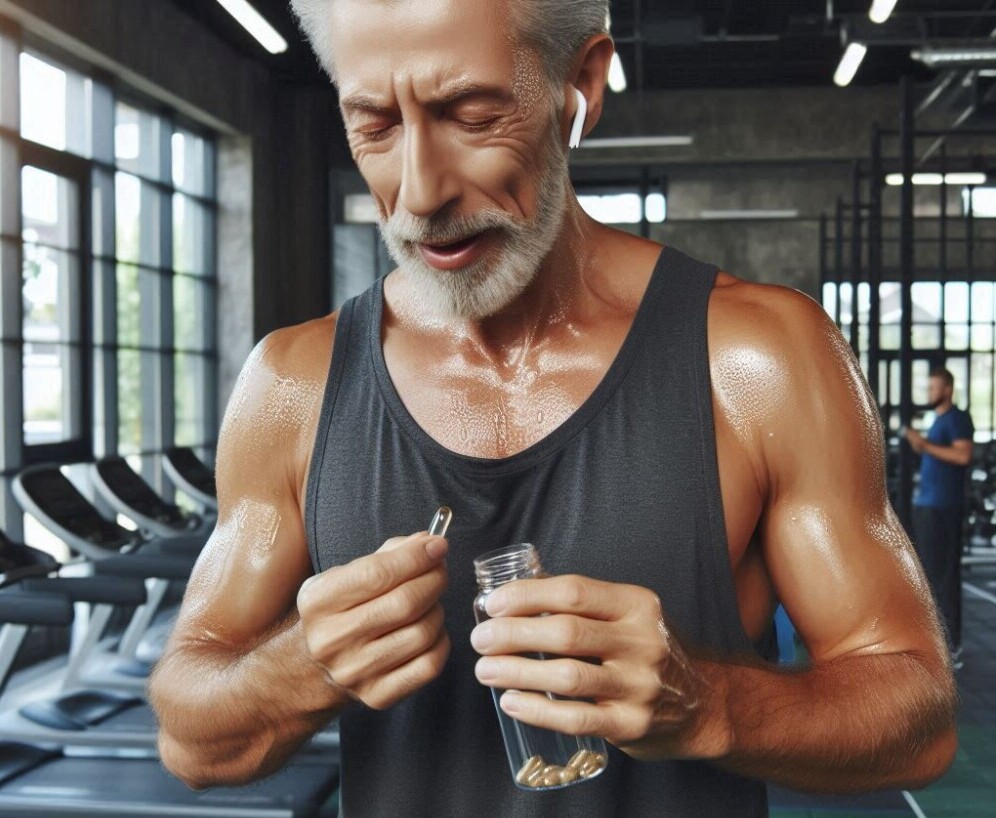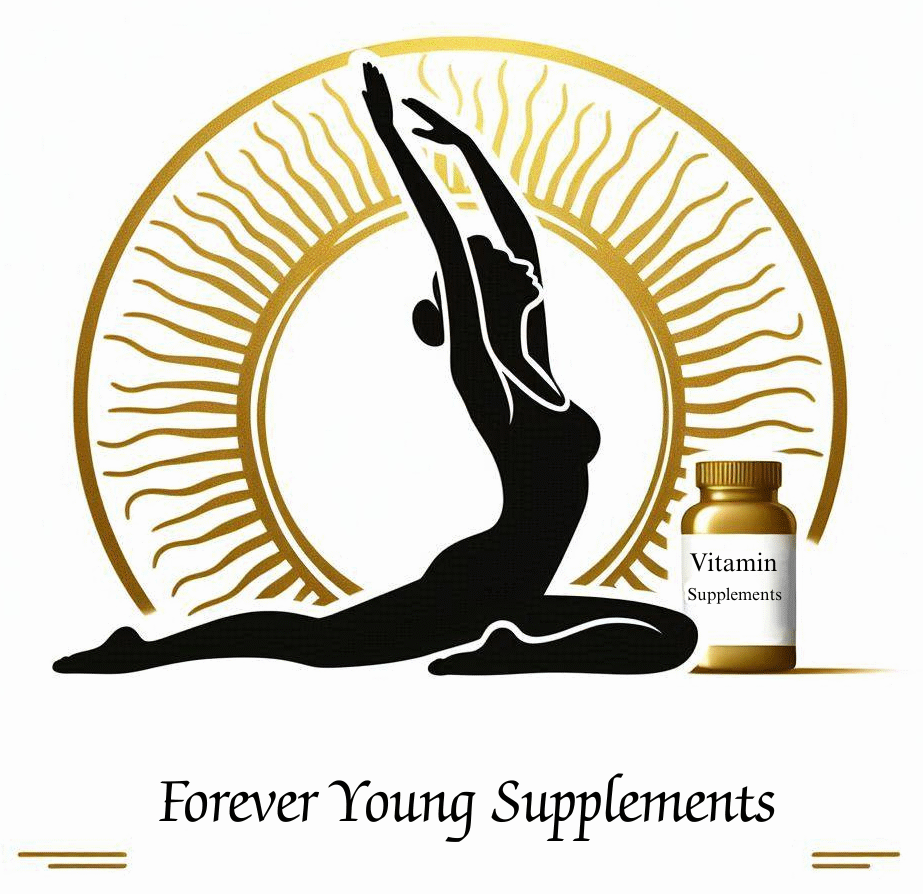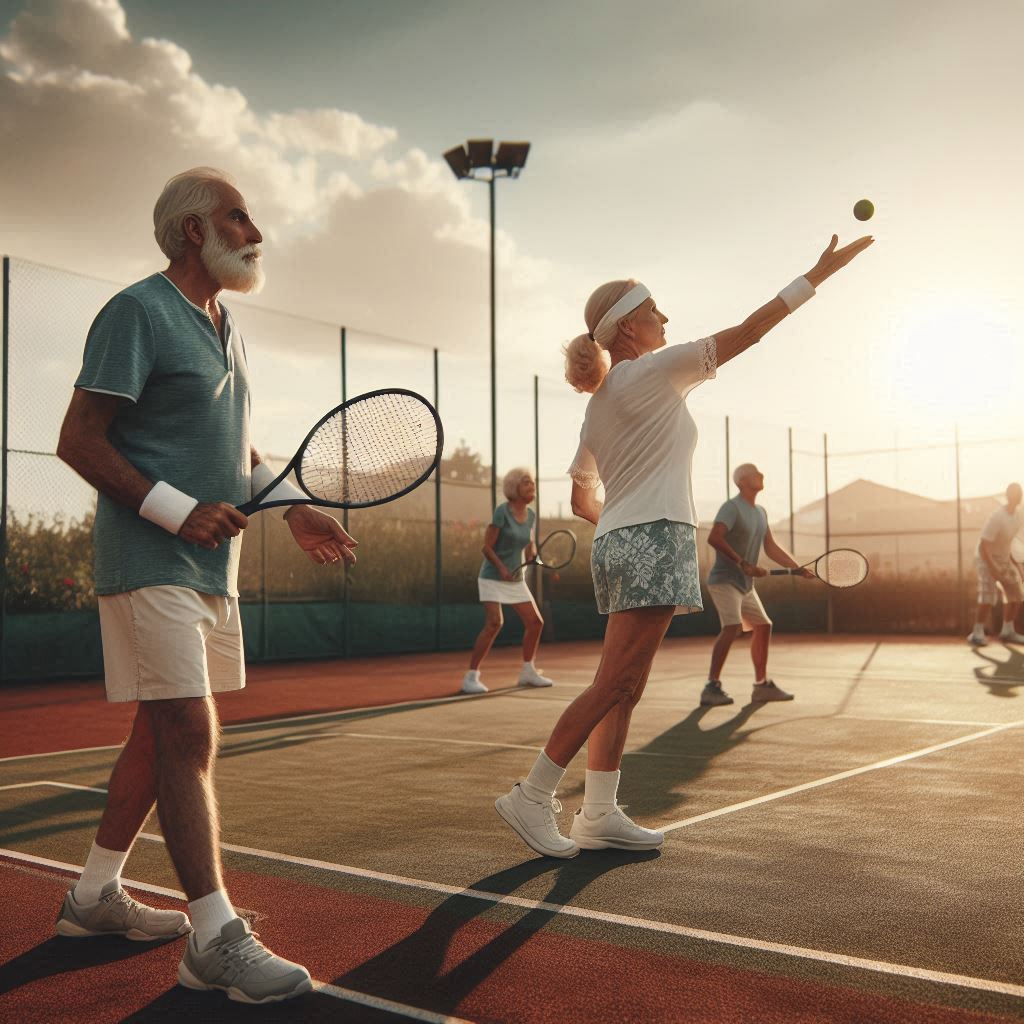Aging is inevitable, but aging well? In many cases that’s a choice and one supported by lifestyle, exercise, and most importantly, proper nutrition. Today’s seniors are redefining what it means to grow older. Many in the 50–65+ age range are not just living longer but staying fit, engaged, and energized. These active seniors are participating in marathons, cycling across cities, dancing, hiking, traveling, volunteering, and even starting new businesses.

For them, optimal health is not just about avoiding illness, it’s about maintaining vitality, cognition, strength, and energy.
Yet as the body ages, nutrient absorption decreases, metabolism slows, and dietary habits may shift. Even with a healthy diet, it can be difficult to get all the necessary nutrients from food alone. That’s where vitamins and supplements play a crucial role.
In this blog, we’ll explore:
- Who are active seniors?
- The categories of elderly
- Key vitamins every senior should consider
- What vitamins give seniors more energy
- The most common deficiencies in older adults
- The best anti-aging vitamins
- And a curated list of the best supplements to support active aging
Who Are Active Seniors?
Active seniors are typically individuals aged 50 to 75+ who engage in regular physical, mental, and social activities. Unlike the stereotypical image of elderly individuals confined by limitations, active seniors prioritize mobility, wellness, independence, and a high quality of life. This group often includes:
- Pre-retirees (50–64): Still working or recently retired, often engaging in preventive health care, fitness, and new hobbies.
- Young-old (65–74): Generally healthy, mobile, and socially active.
- Middle-old (75–84): May start experiencing more chronic conditions but can still maintain an active lifestyle with some adaptations.
- Oldest-old (85+): Typically face increased physical limitations, but many still remain mentally sharp and socially involved.
By understanding these categories, we can better address the unique nutritional needs that evolve with age and activity level.

Why Supplements Matter as We Age
As we get older, several physiological changes affect how the body processes nutrients:
- Decreased absorption: The stomach produces less acid, which can hinder absorption of essential nutrients like vitamin B12, calcium, and magnesium.
- Appetite changes: Illness, medications, or lifestyle shifts can lead to reduced food intake.
- Medication interactions: Many seniors take prescription drugs that can deplete vitamins and minerals.
For active seniors, failing to meet nutrient needs can result in fatigue, weakened immunity, cognitive decline, brittle bones, and muscle loss—all things that can hinder independence and activity.
So which vitamins and supplements should seniors focus on?

Most Important Vitamins for Seniors
Here’s a breakdown of the core vitamins that are particularly crucial for older adults:
1. Vitamin D
- Why it matters: Supports bone health, immune function, and mood regulation.
- Deficiency risk: High. Aging skin doesn’t synthesize vitamin D as efficiently, and many older adults don’t get enough sun exposure.
- Sources: Sunlight, fortified milk, fatty fish. Supplementation is often necessary.
- Recommended dose: 800–1000 IU/day (may vary based on testing).
2. Vitamin B12
- Why it matters: Essential for nerve health, red blood cell production, and cognitive function.
- Deficiency risk: High. Around 10–15% of people over 60 have B12 deficiency due to reduced stomach acid.
- Symptoms of deficiency: Fatigue, memory issues, depression, tingling sensations.
- Sources: Meat, eggs, dairy. Supplements or B12 shots may be needed.
3. Calcium
- Why it matters: Critical for maintaining bone density and preventing fractures.
- Deficiency risk: Moderate to high, especially in women post-menopause.
- Sources: Dairy, leafy greens, fortified plant-based milks.
- Note: Pair with vitamin D for optimal absorption.
4. Magnesium
- Why it matters: Supports muscle function, blood pressure regulation, and heart health.
- Deficiency risk: Moderate, especially in those with digestive disorders or taking certain medications (like diuretics).
- Symptoms: Muscle cramps, irregular heartbeat, fatigue.
5. Omega-3 Fatty Acids (EPA & DHA)
- Why they matter: Reduce inflammation, protect the heart, and support brain health.
- Sources: Fatty fish (salmon, mackerel), fish oil supplements, algae-based omega-3s.
- Tip: Omega-3s can also improve joint mobility and reduce morning stiffness.
6. Vitamin K2
- Why it matters: Works with vitamin D to keep calcium in bones and out of arteries, reducing the risk of calcification.
- Sources: Natto (fermented soy), dairy, meat. Often combined with D3 in supplements.
7. CoQ10 (Coenzyme Q10)
- Why it matters: Supports cellular energy production and heart function.
- Especially important for: People taking statins, which can deplete CoQ10 levels.
What Vitamin Gives Seniors Energy?

Vitamin B12 is the top contender when it comes to boosting energy in older adults. It helps convert food into usable energy and supports neurological health.
Other energy-boosting nutrients include:
- Iron: Necessary for transporting oxygen in the blood. Deficiency leads to anemia and fatigue.
- Vitamin D: Deficiency often manifests as tiredness and low mood.
- CoQ10: Essential for mitochondrial function and energy production at the cellular level.
- B-complex vitamins: Work together to help the body metabolize carbs, proteins, and fats into fuel.
For seniors constantly feeling tired despite adequate sleep, it’s a good idea to get their vitamin B12 and iron levels tested.
What Vitamin is Often Lacking in Older Adults?
The top vitamin deficiencies in seniors are:
- Vitamin D
- Vitamin B12
- Calcium
- Magnesium
- Folate (Vitamin B9)
These deficiencies often stem from decreased appetite, reduced nutrient absorption, and medication interactions.
Routine blood tests can help identify specific deficiencies, allowing for personalized supplementation.
What Is the Number One Anti-Aging Vitamin?
While many vitamins play a role in healthy aging, Vitamin E stands out as the top anti-aging vitamin due to its potent antioxidant properties.
- Vitamin E: Protects cells from oxidative stress, supports skin health, and may slow age-related cognitive decline.
- Sources: Nuts, seeds, spinach, and fortified cereals.
- Tip: Look for the natural form (d-alpha-tocopherol) over the synthetic version (dl-alpha-tocopherol) for better absorption.
Other notable anti-aging vitamins include:
- Vitamin C: Boosts collagen production and supports the immune system.
- Vitamin A (Retinol and Beta-Carotene): Supports vision, skin, and cell regeneration.
- Vitamin D: Protects bones, muscles, and mood.
- Resveratrol (technically a polyphenol, not a vitamin): Found in red grapes, known for its anti-aging and anti-inflammatory effects.
Best Supplements for Active Seniors: A Curated List
Here’s a complete supplement stack tailored for active seniors who want to stay sharp, strong, and mobile:
1. Multivitamin for Seniors
Look for a 50+ or 65+ formula that includes adjusted doses of:
- B-complex vitamins
- Vitamin D3
- Vitamin K2
- Zinc
- Selenium
- Lutein and zeaxanthin (for eye health)
2. Calcium + D3 + K2 Complex
This trio helps maintain bone strength while avoiding arterial calcification.
3. Omega-3 (Fish Oil or Algal Oil)
- Dosage: 500–1000 mg EPA + DHA daily
- Benefits: Brain function, joint health, heart health
4. B12 (Methylcobalamin or Cyanocobalamin)
- Dosage: 500–1000 mcg sublingually or by injection for absorption issues
5. Magnesium (Citrate or Glycinate)
- Supports sleep, muscle relaxation, and cardiovascular function
6. CoQ10 (Ubiquinol)
- Especially beneficial for those on statins
- Dosage: 100–200 mg/day
7. Probiotics
- Promotes digestion, immune function, and nutrient absorption
- Look for multi-strain formulas with at least 5–10 billion CFU
8. Collagen Peptides
- Supports skin elasticity, joint health, and bone density
- Best taken with vitamin C for improved synthesis
9. Lutein & Zeaxanthin
- For macular degeneration and overall eye health
Tips for Safe Supplementation
- Consult a healthcare provider: Especially if yo are taking medications or have chronic conditions.
- Check for third-party testing: Look for USP, NSF, or ConsumerLab certifications.
- Start slow: Begin with a multivitamin and add supplements gradually as needed.
- Don’t over-supplement: More isn’t always better. Excess vitamins (especially fat-soluble ones like A, D, E, K) can accumulate and cause harm.
Conclusion: Aging Actively Starts With Smart Nutrition
Being an active senior isn’t about defying age, it’s about embracing it with strength, grace, and energy. By understanding your body’s evolving nutritional needs and supplementing wisely, you can support your mind, muscles, bones, and energy levels well into your 70s, 80s, and beyond.
Whether you’re hiking, dancing, volunteering, or simply chasing your grandkids around the yard, these vitamins and supplements can help you stay vibrant and healthy every step of the way.
Quick Recap: FAQs
- What are active seniors? Adults aged 50–75+ who maintain high levels of physical, social, and mental activity.
- What are the categories of elderly? Pre-retirees (50–64), Young-old (65–74), Middle-old (75–84), Oldest-old (85+).
- Most important vitamins for seniors? D, B12, calcium, magnesium, omega-3s, vitamin K2.
- Best vitamin for energy? B12, with support from CoQ10 and B-complex.
- Most common deficiency? Vitamin D, followed by B12 and calcium.
- Top anti-aging vitamin? Vitamin E, for its antioxidant and skin-protective effects.
If you’re an active senior, or hope to become one, please consider this as your nutritional roadmap to healthy aging. Talk with your doctor, choose high quality supplements, and keep moving. The best years are still ahead.

